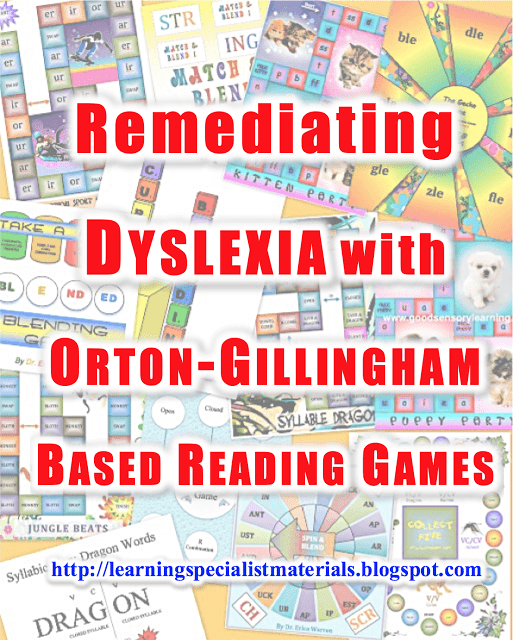This week I wanted to tell you about my online store, Good Sensory Learning. I’m Dr. Erica Warren, and I established this site so I could share all the materials that I have created over the last 20+ years as a learning specialist and educational therapist. When I first began my private practice, Learning to Learn, I had great difficulty finding fun and multisensory materials for my students that were effective and engaging. So back in 2005, I made it my mission to design and distribute high-end, remedial products as well as memorable, motivating lessons that bring delight to learning. If you would like to try a free sampling of my activities , CLICK HERE . How Are the Products Organized at Good Sensory Learning? You can download my Free Printable Catalog or you can browse the site using the grey “search all products” bar in the top right of any page with keywords such as dyslexia, working memory, and executive functioning. What’s more, drop down menus in the red banner allow you t...
Students with dyslexia and other language-based learning disabilities often learn differently and require an alternative approach to learning basic reading. In addition, most of these young learners are working full tilt while sitting in the classroom and by the time they get home and have to complete their homework, they are mentally spent. As a result, tagging on remedial reading lessons to a cup that is already overflowing can be enough to turn these kids off to learning altogether.
How Can We Help These Students Learn the Core Skills Needed to be Successful Readers?- First, employ an individualized approach as each student has unique challenges and gaps in knowledge. If you need to assess the areas that require remediation be sure to use an assessment tool such as the Good Sensory Learning Reading Assessment
- Second, the process needs to be fun and engaging. Many programs require students to slog through boring lessons, complicated rules, and bland workbook pages. Many of these concepts, however, can be enjoyable and motivating when employing mindful memory strategies and games. Here are some multisensory materials that can be used with any phonics or Orton-Gillingham program. They can be used to strengthen weak areas of cognition Click here for a menu of options.
- Third, help students learn how to visualize what they are reading. Many struggling readers do not have the cognitive space to use their mind's eye when reading, therefore, developing this skill to automaticity is key. To learn about the research behind visualization and learning as well as how to teach this needed skill Click here.
- Fourth, supplement all reading programs with card and board games that allow students to practice the concepts they are learning. This brings the fun factor into learning and can help to nurture a love for reading.
- Fifth, use a remedial program that is backed by time, testimonials and research. The Orton-Gillingham approach to reading is a well-established and researched approach that offers a multisensory, sequential, incremental, cumulative, individualized and explicit approach. There are many programs that are available. Click here to learn about a selection of these programs.
- Sixth, integrate a student-created, colorful, language arts handbook or guide. Click here to learn more about this method.

 At Good Sensory Learning, we offer a large selection of downloadable card and board games that work with any Orton-Gillingham or phonics-based reading program. In fact, we specialize in tools for dyslexia remediation!
At Good Sensory Learning, we offer a large selection of downloadable card and board games that work with any Orton-Gillingham or phonics-based reading program. In fact, we specialize in tools for dyslexia remediation!Dr. Erica Warren is the author, illustrator, and publisher of multisensory educational materials at Good Sensory Learning and Dyslexia Materials. She is also the director of Learning to Learn and Learning Specialist Courses.
· Blog: https://learningspecialistmaterials.blogspot.com/
· YouTube Channel: https://www.youtube.com/user/warrenerica1
· Podcast: https://godyslexia.com/
· Store: http://www.Goodsensorylearning.com/ & www.dyslexiamaterials.com
· Courses: http://www.learningspecialistcourses.com/
· Newsletter Sign-up: https://app.convertkit.com/landing_pages/69400


Comments
Post a Comment